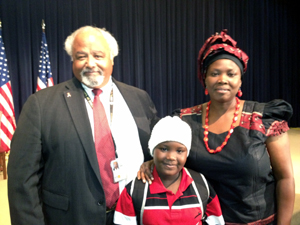And so to expect the bulk of the New Patriotic Party leadership to sit back and be clinically aloof while a handful of lawyers battle it out at the Supreme Court is rather insulting; and that is being extremely polite about it. But, of course, if one were related to President Mahama and comfortably located like Dr. Nyaho-Tamakloe, stealthily and steadily and shamelessly undermining the NPP petitioners would be the fetching and/or prime choice for an avocation.
You see, Dr. Nyaho-Tamakloe poignantly approximates that old pidgin-English maxim that runs as follows: “Country broke or no de broke, I dey inside.” Ghana’s former ambassador to Serbia and Croatia clearly has nothing to lose. To be certain, he actually has far more to gain with one of his kinsmen being at the helm of our national affairs, than having a bunch of people with whom he only tenuously and blearily share ideological suasion. Remember the age-old maxim of “Blood is thicker than water”? That is glaringly what is at stake here in the shameless imagination and personal political fortunes of the former chairman of the Ghana Football Association (GBA).
Of course, none among the topmost executive ranks of the New Patriotic Party is deceived by the pompous moral pretensions of Dr. Nyaho-Tamakloe. Not too long ago, for instance, Mr. Jake Obetsebi-Lamptey squarely put Dr. Nyaho-Tamakloe where he belongs vis-a-vis latter’s relationship with the NPP, when the National Chairman of the country’s largest opposition party – at least for now – bitterly complained about the increasing liability that Dr. Nyaho-Tamakloe was becoming to the party.
I have warned in these very pages that his claim to being a founding member of the New Patriotic Party ought not to give Dr. Nyaho-Tamakloe the license or right to feel that he has any inalienable right to facilitate the party’s disintegration, even as he passionately let on to TV 3’s Mr. Kenneth Osei-Ampofo. But that his sentiments unabashedly and fanatically reside with his kinsman, the man who unconscionably colluded with Dr. Kwadwo Afari-Gyan to criminally rig Election 2012 cannot be gainsaid.
Now, it is up to the National Executive Committee (NEC) of the New Patriotic Party to boldly and frankly conduct Dr. Nyaho-Tamakloe out of its fold and into the sunsplashed nirvana of political tolerance that he claims to be the hallmark of the Rawlings-minted National Democratic Congress. You see, you don’t want these forensically provable outsiders to be smugly telling the rest of us where the current pulse and center of party leadership ought to be located. That is simply not a salient characteristic of an authentic team player.
Kwame Okoampa-Ahoofe, Jr., Ph.D. Department of English Nassau Community College of SUNY Garden City, New York
E-mail: okoampaahoofe@optimum.net
The opinions expressed are the author’s and do not necessarily reflect the views or have the endorsement of the Editorial Board of http://www.africanewsanalysis.com, http://www.africa-forum.net and http://www.wapsfeatures.wordpress.com

